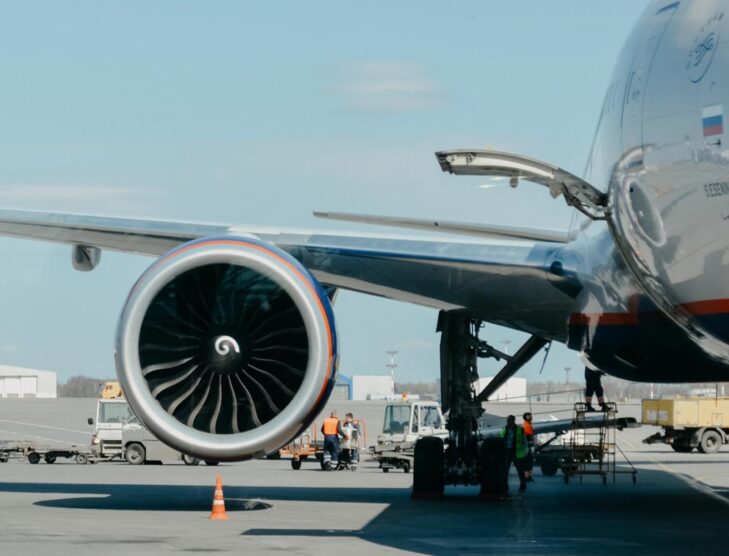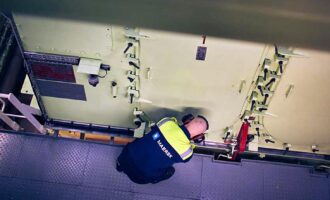
Global Bioenergies announces breakthrough toward biojet fuel
Global Bioenergies, a French company producing light liquid hydrocarbons derived from agricultural products using biological methods, has made major advances in its process for converting plant-based feedstocks into isobutene. The resulting improved performance will speed up penetration of the cosmetics market over the next few years and allows to target production costs that would make this process the world leader for converting industrial sugars into biojet fuel.
Since 2019, Global Bioenergies has focused on cosmetics applications for its process, isobutene derivatives being an important input for these markets, and recently launched its own make-up brand, LAST®, the first to combine longwear performance with low transfer in an over 90% natural product.
It is now building a production unit at Pomacle site near Reims, so the industry’s big names can start buying into this innovation, increasing the naturalness of their make-up formulations. The unit will come onstream in the first quarter 2022 with annual capacity of around 100 tonnes.
Global Bioenergies plans a larger plant for 2024, that will be able to produce thousands of tonnes and serve the vastly bigger skincare and haircare markets. Renewable isobutene derivatives will replace the fossil-fuel based ingredients currently used in skin and hair formulations. They will also help substitute volatile silicons which are being phased out by regulators.
These latest advances in process performance mean Global Bioenergies can now forge ahead faster with its step-by-step development plan. It opens the way toward its historic aim of making a positive environmental impact on a global scale via the mass production of biofuels. Specifically, the process could lead to aviation biofuels, a first flight took place this year, to massively decarbonise air travel.
“Until now, the process worked well and in a replicable fashion, but performances seemed to have hit a ceiling. A long-term study showed that a specific component, produced in low volumes, was quietly poisoning the strain during the production phase. We were able to construct new strains that were virtually free of this poison, unleashing big gains in process performance,” Romain Chayot, head of the Strain Construction Department.
Pierre Monsan, pioneer in industrial biology and Director at Global Bioenergies, said: “The company has been doing remarkable work here. It started with a recent scientific study of the level of excellence published in Nature Communications, which made it possible to identify what was constraining the efficiency of our initial process. With the new strains, the benefits of fermenting a gas, which is extracted spontaneously from the reaction medium by volatilisation rather than building up, become clear. The process thus moves us a step closer to achieving optimal continuous performance, the holy grail in our field of industrial biology. Besides the scientific achievement, we are now getting close to having the cheapest production costs in the field, and becoming a big player in the emerging global competition for biojet fuel.”
“Since 2017, we have been working with SkyNRG, our partner in the EU-funded REWOFUEL project, to get our technology approved for air travel by ASTM, the international regulator for aviation biofuel. We expect to get the certification of our components for commercial flights in 2022 from the task force of aircraft and engine manufacturers,” said Bernard Chaud, Head of Industrial Strategy at Global Bioenergies.
Marc Delcourt, co-founder and CEO of Global Bioenergies, explained: “Many solutions, such as electric or hydrogen-powered planes, have been put forward as ways to cut the externalities of air travel, i.e. the environmental destruction caused by flights’ CO2 emissions. But the consensus has identified biojet fuel as the best solution for the next few decades. Biojet fuel has a modest additional cost – which is falling anyway as oil prices spiral – and will be usable in existing planes without engine modifications.
After an initial phase working with plant-oil-based biojet fuel that has now reached certain limits, global priorities are turning toward more productive processes based on industrial sugars that can reduce CO2 by a factor of 3-5. Our exclusive “deeptech” technology is addressing this environment. Our strategy follows a four-step roadmap, focusing short-term on the cosmetics market, which has lower volumes but higher margins than energy. Our recent technical progress has confirmed our conviction that our process can be scaled up in future to serve the big energy markets.
Reducing the CO2 emissions of aircraft is one of the 10 objectives of the France 2030 plan. The multiple applications of our process (cosmetics, air transport, plastics, rubbers, specialty and commodity chemicals) mean we can decarbonise our industries on a grand scale. Our factories will rely on farm inputs and be rooted in the regions. Rolling out our process will thus help strengthen France’s industrial and energy sovereignty.









